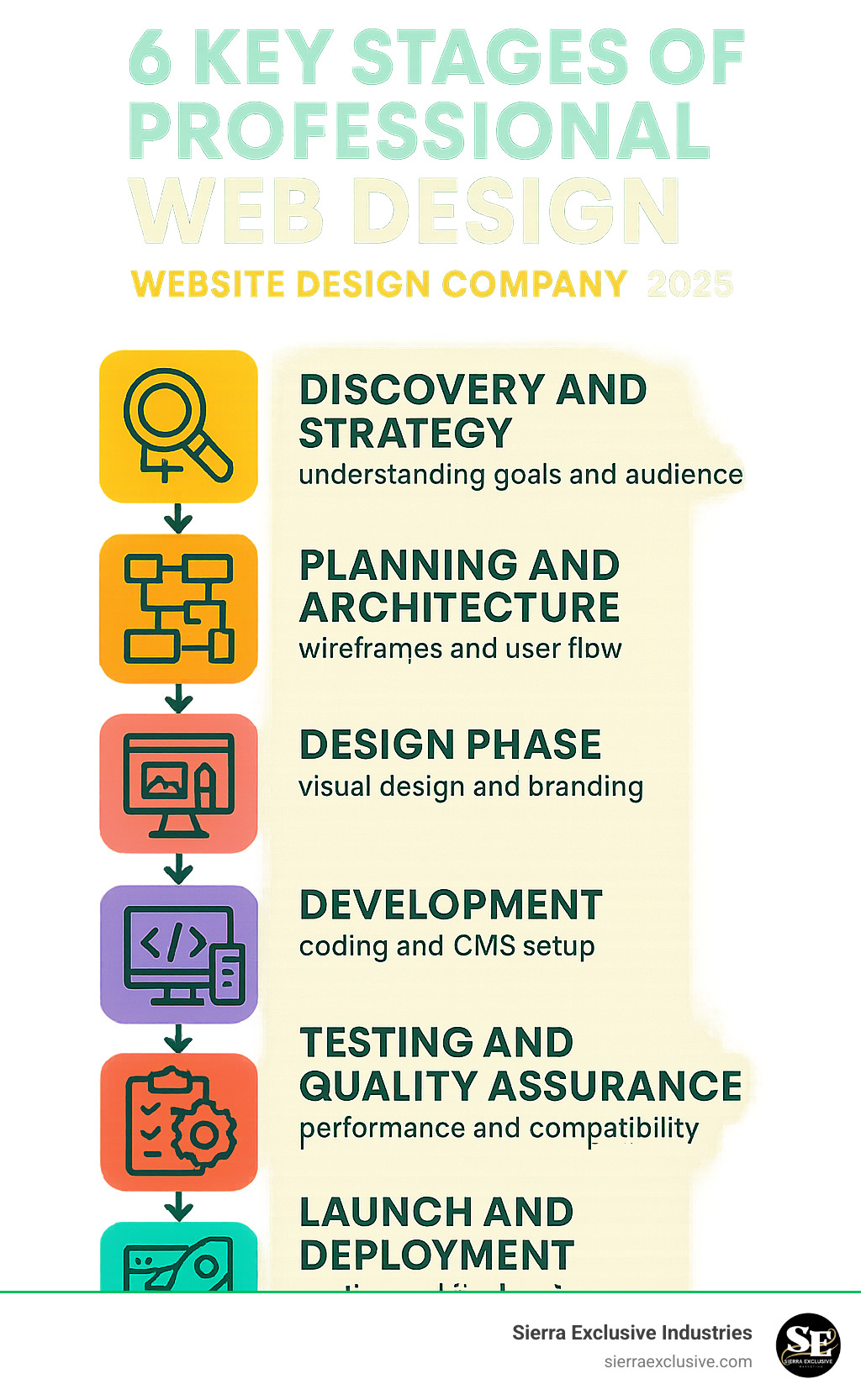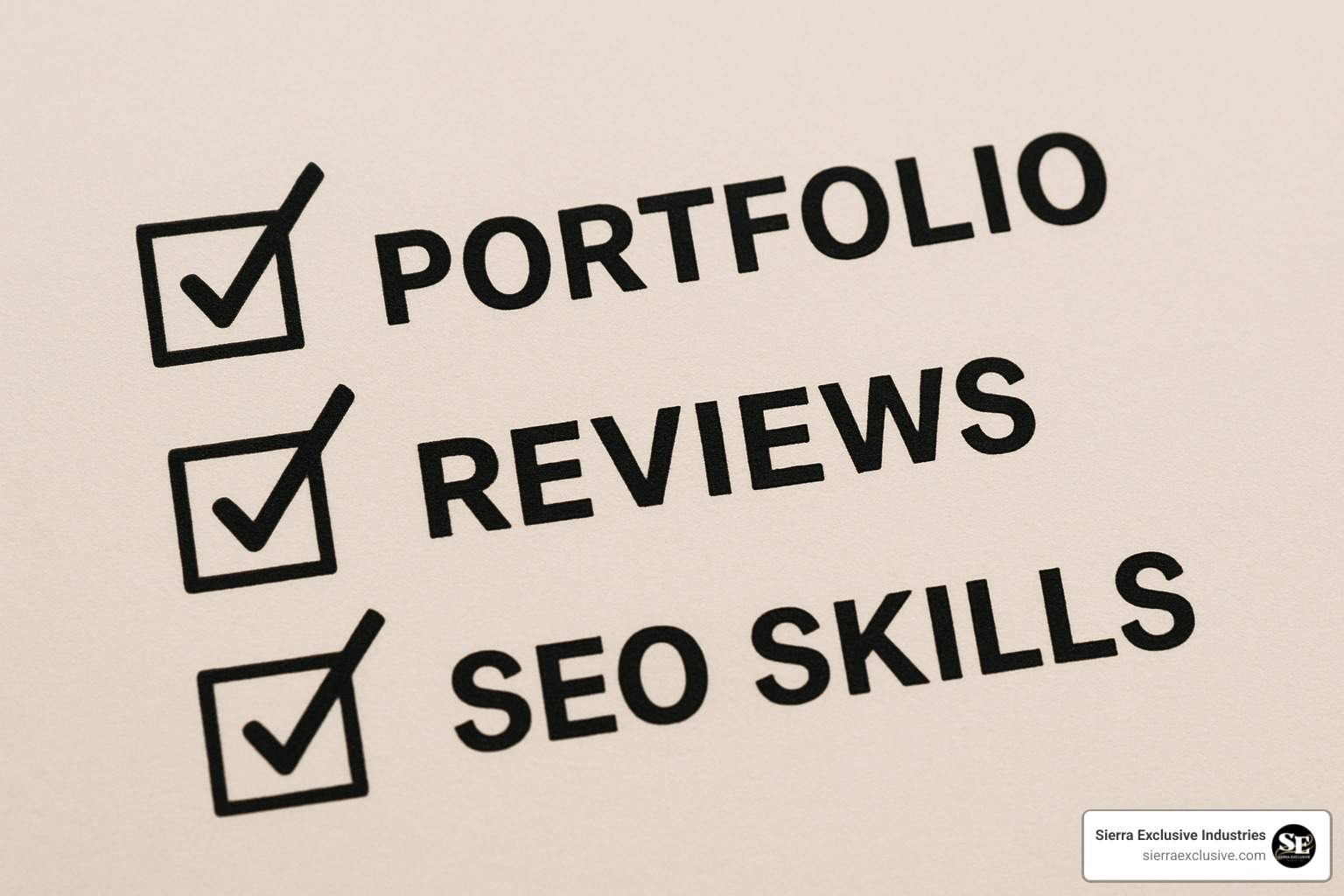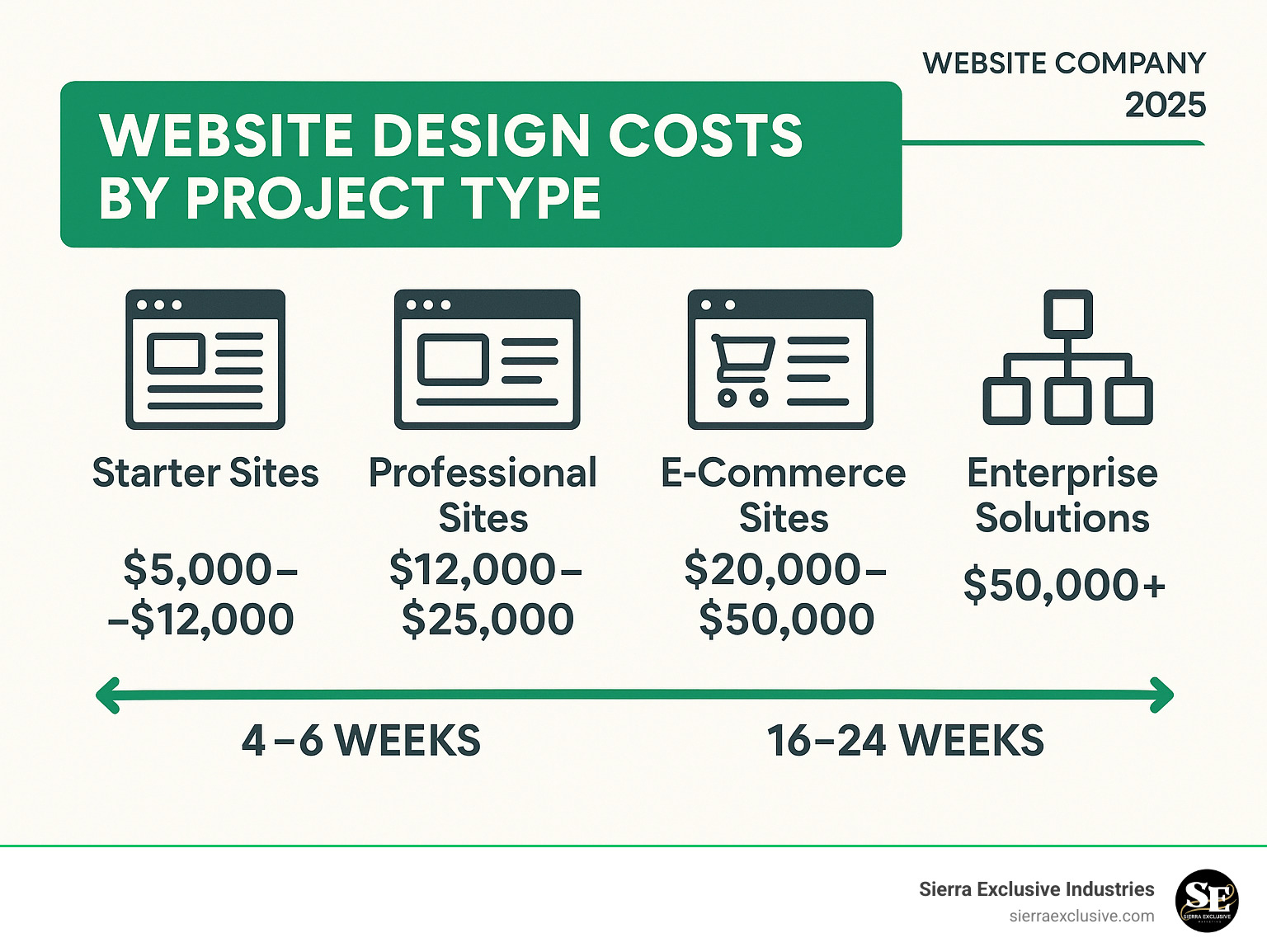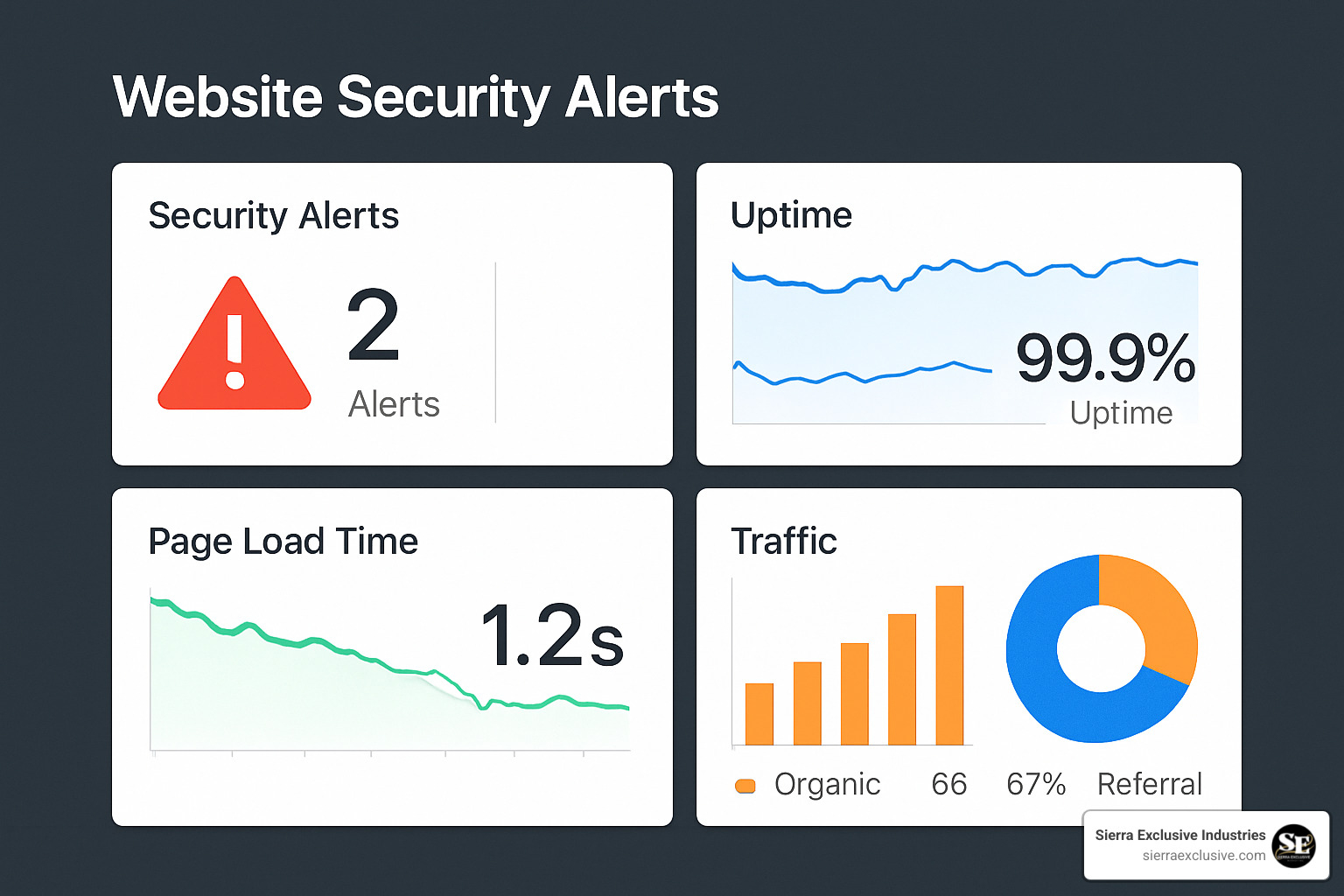Why Choosing the Right Website Design Company Matters for Your Business
A website design company can make or break your online success. Your website is often the first impression potential customers have of your business, and getting it right requires the expertise of professionals who understand both design and business strategy.
Key Services Website Design Companies Offer:
- Custom Web Design – Custom to your brand and goals
- User Experience (UX) Design – Optimized for conversions
- Website Development – Technical implementation and coding
- E-commerce Solutions – Online stores and payment processing
- SEO Integration – Built-in search engine optimization
- Ongoing Support – Maintenance and updates after launch
The stakes are high. Research shows that 75% of people form an opinion about a company based solely on website design, and over 90% of online experiences start with a search engine. A professionally designed website isn’t just about looking good—it’s about converting visitors into customers and driving real business results.
Typical Investment Ranges:
- Starter websites (5-15 pages): $5,000-$12,000
- Professional sites (15-30 pages): $12,000-$20,000
- Enterprise solutions (custom): $20,000+
Most projects take 14-18 weeks from start to launch, including findy, design, development, and testing phases.
As Seth Gillen, I’ve helped scale multiple companies to $10M+ annual revenue, working closely with website design companies to create conversion-focused digital assets that drive growth. Through my experience at Sierra Exclusive Marketing, I’ve seen how the right website design company partnership can transform a business’s online presence and revenue potential.

Website design company vocab explained:
The Core Services of a Professional Website Design Company

Choosing a website design company is like hiring a full-stack growth team: the best agencies blend strategy, creativity, and technical skill so every pixel serves a business purpose.
Essential services you should expect:
- Custom Web Design – Brand-first visuals created from scratch
- UX & UI Design – Layouts tested for clarity and conversions
- Website Development – Clean, scalable code that loads fast on any device
- E-commerce Solutions – Secure shopping carts, payment gateways, and inventory tools
- CMS Integration – Easy, WordPress-friendly editing for your staff
- Website Design and SEO Services – Technical and on-page SEO baked in from day one
- Brand & Graphic Design – Logos, color palettes, and marketing collateral that match your site
- Ongoing Maintenance & Support – Updates, security patches, and performance tuning
What to Expect from a Top-Tier Website Design Company
Great agencies approach web builds as business projects, not art projects.
- Strategic Planning tied to revenue goals
- Conversion-Rate Optimization (clear calls-to-action, frictionless forms)
- Custom Functionality for bookings, portals, or integrations
- Scalable Architecture that grows with traffic and content
- Professional Project Management with scheduled milestones
- Transparent Communication so you always know what’s next
- Post-launch Warranty that fixes any code issues at no extra cost
That’s the baseline you should benchmark every potential partner against.
The Anatomy of a Successful Web Design Project: From Concept to Launch
A professional website design company follows a repeatable roadmap. Here’s the high-level view without the jargon-heavy deep dive.
1. Findy & Strategy
Clarify business goals, study your audience, and spot gaps your competitors leave open.
2. Planning
Create a site map, low-fidelity wireframes, and simple prototypes so everyone agrees on structure before design begins.
3. UI/UX Design
Turn wireframes into polished mock-ups that match your brand guidelines and guide users toward a primary call-to-action.
4. Development
Front-end code brings the visuals to life; back-end code powers forms, databases, and any custom tools. A CMS such as WordPress is configured so your team can make edits easily.
5. Quality Assurance
The agency tests speed, security, browser compatibility, and mobile responsiveness—fixing bugs before anyone sees them.
6. Launch
DNS is updated, SSL installed, and monitoring set up. A good partner stays on call during the first days to squash any unexpected issues fast.
Collaborating Smoothly
- Provide timely feedback and content.
- Attend short, scheduled check-ins.
- Use the project manager as your single point of contact.
- Let data—not personal preference—drive final decisions.
Following this streamlined process keeps most small-to-medium projects on track for a 14-to-18-week launch window.
Key Factors for Choosing the Right Website Design Company

Finding the right website design company can feel overwhelming with so many options available. The truth is, this decision will shape your online presence for years to come, so it’s worth taking the time to evaluate potential partners thoroughly.
Think of it like hiring a key employee—you wouldn’t just look at their resume, right? You’d want to see their work, talk to their previous employers, and understand how they approach challenges. The same principle applies when choosing a web design partner.
This section helps you vet potential partners systematically. It’s about finding a fit for your goals, budget, and industry needs. A great partnership goes beyond just creating something that looks pretty—it’s about building a digital asset that drives real business results.
Evaluating a Website Design Company’s Portfolio and Expertise
A company’s portfolio tells the real story of their capabilities. It’s like looking through a photographer’s best shots—you get a sense of their style, skill level, and whether they’re the right fit for your vision.
Review Past Work
Start by examining their recent projects with a critical eye. Look for websites that demonstrate clean, professional design with intuitive navigation that makes sense to you as a user. Pay attention to mobile responsiveness—does the site work smoothly on your phone? Check loading speeds by clicking around their portfolio sites. If they’re slow, that’s a red flag.
Notice how they handle calls-to-action. Are the “Contact Us” buttons easy to find? Do the websites guide you naturally toward taking action? These details reveal whether the agency understands that beautiful design must also drive business results.
Look for Industry Relevance
While good design principles work across industries, there’s real value in finding an agency that understands your specific sector. An agency that’s worked with healthcare companies knows about HIPAA compliance. One that’s designed for restaurants understands online ordering systems.
That said, don’t eliminate agencies just because they haven’t worked in your exact industry. Sometimes fresh perspectives can be incredibly valuable. The key is finding someone who asks intelligent questions about your business and demonstrates they can learn quickly.
Read Client Testimonials
Client testimonials give you insight into what it’s actually like to work with the agency. Look beyond generic praise like “great work” and focus on testimonials that mention specific outcomes and results. Did the client see increased traffic? Better conversion rates? More leads?
Pay attention to comments about communication quality and adherence to timelines. Web design projects can be stressful, so you want a partner who keeps you informed and delivers on their promises. Also look for mentions of post-launch support quality—you’ll need ongoing help after your site goes live.
Check Case Studies for Results
Detailed case studies show how agencies approach challenges and measure success. The best case studies include quantifiable results like “increased organic traffic by 150%” or “improved conversion rates by 40%.” These numbers demonstrate that the agency focuses on business outcomes, not just pretty designs.
Look for case studies that explain the problem, the solution, and the results. This gives you insight into their problem-solving process and whether they’re data-driven in their approach.
Verify Accreditations
Professional accreditations show that an agency invests in staying current with industry best practices. Look for certifications from Google Analytics and Google Ads, HubSpot, and good Better Business Bureau ratings. These credentials indicate ongoing education and commitment to professional standards.
Use Platforms to See Verified Reviews
Platforms like Clutch provide verified reviews from actual clients, which are far more reliable than testimonials on agency websites. These reviews undergo rigorous verification processes, including identity confirmation of reviewers, project legitimacy verification, and ongoing review auditing with fraud prevention measures.
How Review Platforms Verify Agencies
Professional review platforms use comprehensive evaluation methodologies that combine in-depth client interviews, comprehensive project details, market presence analysis, portfolio evaluation, and industry recognition assessment. This multi-faceted approach gives you confidence that the reviews are legitimate and helpful.
What Technical Skills Should Your Website Design Company Have?
Technical expertise separates professional agencies from amateur providers. Your website design company should demonstrate competency in several key areas that directly impact your site’s performance and success.
Mobile-First Responsive Design
With mobile traffic accounting for roughly half of all web traffic, mobile-first design isn’t optional—it’s essential. Professional agencies design for mobile devices first, then scale up to desktop versions. This approach ensures your site works beautifully on smartphones and tablets, not just computers.
Ask potential agencies to show you mobile versions of their recent work. Steer through these sites on your phone. Do they feel smooth and intuitive? Can you easily find information and complete actions? If the mobile experience feels clunky, keep looking.
Search Engine Optimization
SEO integration during development is far more effective than trying to optimize a completed website. Your chosen agency should demonstrate expertise in both on-page SEO and technical SEO.
On-Page SEO
On-page SEO includes optimizing individual pages for search engines through proper heading structure (H1, H2, H3), meta descriptions and title tags, image optimization and alt text, internal linking strategies, and content optimization. These elements help search engines understand your content and rank your pages appropriately.
Technical SEO
Technical SEO ensures search engines can crawl and index your website effectively. This includes fast loading speeds, clean code structure, XML sitemaps, schema markup, and SSL certificates. These behind-the-scenes elements significantly impact your search rankings.
Page Speed Optimization
Page speed directly impacts both user experience and search rankings. Professional agencies optimize through image compression and sizing, code minification, caching systems, and content delivery networks (CDNs). If your site takes more than three seconds to load, visitors will leave.
Secure Coding Practices
Website security protects your business and customer data. Professional agencies implement SSL certificates, regular security updates, secure hosting environments, DDoS protection, and web application firewalls. Security isn’t glamorous, but it’s absolutely critical for protecting your business.
CMS Proficiency (e.g., WordPress)
Content management system expertise enables ongoing content updates and maintenance. WordPress powers over 40% of websites, making it a common and smart choice for most businesses. Your agency should be able to train you on managing your content independently.
E-commerce Platform Expertise
If you’re selling online, your agency needs specialized knowledge of payment processing systems, inventory management, shopping cart functionality, security compliance (PCI DSS), and multi-channel integration. E-commerce development requires different skills than basic website design.
For comprehensive guidance on technical requirements, reference Google’s SEO Starter Guide, which outlines best practices for search engine optimization.
Explaining Timelines and Costs for a Website Design Company
When budgeting for your website project, understanding how website design company pricing works helps you make informed decisions and avoid surprises down the road.
Project scope drives everything. A simple five-page business website takes a completely different approach than a complex e-commerce platform with hundreds of products. The scope determines not just the timeline, but also the expertise level required and the overall investment needed.
Custom design costs more than templates, but there’s a good reason. While you might save money upfront with a template-based solution, custom design delivers better results because it’s built specifically for your business goals and audience. Think of it like buying a custom suit versus something off the rack—both serve the same basic function, but the custom option fits better and makes a stronger impression.
Client feedback speeds everything up. Projects with clear requirements and prompt client responses move smoothly through each phase. When feedback gets delayed or requirements keep changing, timelines stretch and costs can increase. The most successful projects happen when clients stay engaged throughout the process.
Most website design companies complete simple corporate websites in 30-45 days, while larger projects requiring custom functionality can take several months. The key is setting realistic expectations from the start.
How Much Does a Website Design Company Charge?
| Package Type | Page Count | Key Features | Cost Range | Timeline |
|---|---|---|---|---|
| Microsite/Starter | 3-5 pages | Basic design, contact forms, mobile responsive | $5,000-$12,000 | 4-6 weeks |
| Business/B2B | 10-20 pages | Custom design, CMS, SEO optimization, lead forms | $12,000-$25,000 | 8-12 weeks |
| Custom E-commerce | 15-50 pages | Online store, payment processing, inventory management | $20,000-$50,000 | 12-18 weeks |
| Enterprise | 50+ pages | Custom functionality, integrations, advanced features | $50,000+ | 16-24 weeks |
Initial Consultation
Most professional agencies start with a free initial consultation to understand your needs and provide preliminary cost estimates. This meeting is your chance to evaluate their communication style and expertise level. Come prepared with questions about their process, timeline, and what’s included in their pricing.
Project Proposal
A detailed project proposal protects both you and the agency by clearly outlining expectations. Quality proposals include a complete scope of work breakdown, timeline with specific milestones, cost breakdown by project phase, clear terms and conditions, and post-launch support options.
Red flags include vague descriptions, unclear timelines, or proposals that seem too good to be true. Professional agencies invest time in creating comprehensive proposals because they understand that clarity prevents problems later.
Tiered Pricing Models
Many agencies offer tiered pricing structures to accommodate different budgets and business needs. Higher tiers typically include more pages, advanced functionality, additional revisions, and extended support periods. This approach lets you choose the level of service that fits your current needs while leaving room to upgrade later.
Hourly vs. Project-Based Rates
Agencies typically charge either hourly rates ranging from $70-$200+ per hour or fixed project fees. Project-based pricing provides cost certainty and works well for clearly defined projects. Hourly billing offers more flexibility if your requirements might change during development.
Fixed pricing works best when you have a clear vision of what you want. Hourly pricing makes sense for ongoing relationships or projects where requirements might evolve.
Hidden Fees to Avoid
Watch out for agencies that don’t include essential services in their base pricing. Domain registration and hosting setup, SSL certificate installation, basic SEO optimization, content management system setup, mobile responsiveness, and browser compatibility testing should all be included in professional web design packages.
Ask specifically what’s included and what costs extra. Transparent agencies provide detailed breakdowns upfront, while others might surprise you with additional charges later.

Beyond the Launch: Ongoing Support and Website Maintenance

A new site is only step one. Without upkeep, security holes appear, load times creep up, and rankings slip. A results-driven website design company will offer a maintenance plan that typically includes:
- 30-day Warranty – free fixes for launch bugs
- Monthly Health Checks – performance, backups, and broken-link scans (from $49/mo)
- WordPress & Plugin Updates – tested on a staging server first
- Security Monitoring & Hardening – WAF, malware scans, SSL renewal
- Performance Optimization – image compression, CDN tuning, database cleanup
- Content Support – adding blogs, landing pages, or product updates
- Regular Backups – multiple copies stored off-site
- Technical SEO Audits – keep pace with Google algorithm changes
For time-pressed owners—especially those needing website design for small business—handing off this work is the easiest way to protect your investment and focus on growth.
Conclusion
Choosing a website design company is a strategic investment in your brand’s future that will shape your online success for years to come. The right agency doesn’t just build a website—they create a powerful growth engine that drives leads, conversions, and revenue while you focus on what you do best: running your business.
Throughout this guide, we’ve walked through the comprehensive world of professional web design, from initial strategy and custom design to ongoing maintenance and optimization. The results speak for themselves: businesses that invest in professional web design see dramatic improvements in their online performance, with some achieving over 1,000% increases in organic traffic and hundreds of percent improvements in lead generation.
When you’re ready to evaluate potential partners, focus on their process, portfolio, technical skills, and approach to partnership. The best agencies demonstrate proven results through detailed case studies and genuine testimonials, offer comprehensive services that go beyond basic design, use modern development practices with SEO integration built in, provide transparent pricing with clear communication, and most importantly, support your long-term success with ongoing maintenance and optimization.
Here’s the truth about pricing: the cheapest option is rarely the best value. Professional web design requires significant expertise, time, and resources. Agencies that offer suspiciously low prices often cut corners on essential elements like security, performance optimization, or ongoing support—the very things that make your website effective.
The investment in professional web design typically pays for itself through improved conversion rates, better search engine rankings, and improved brand credibility. Whether you’re a small business looking to establish your online presence or an enterprise company seeking to optimize your digital marketing efforts, the right website design company can transform your online success.
Your website is often the first impression potential customers have of your business, and you only get one chance to make that impression count. In today’s competitive digital landscape, partnering with a professional website design company that understands both the technical requirements and business strategy needed for online success isn’t just smart—it’s essential.
For a results-driven approach that leverages AI for guaranteed outcomes, consider a modern digital marketing partner like Sierra Exclusive Industries. We understand that your success is our success, which is why we offer guaranteed outcomes or no payment required.
Start your professional web design project today and find how the right partnership can transform your digital presence and drive sustainable business growth.





